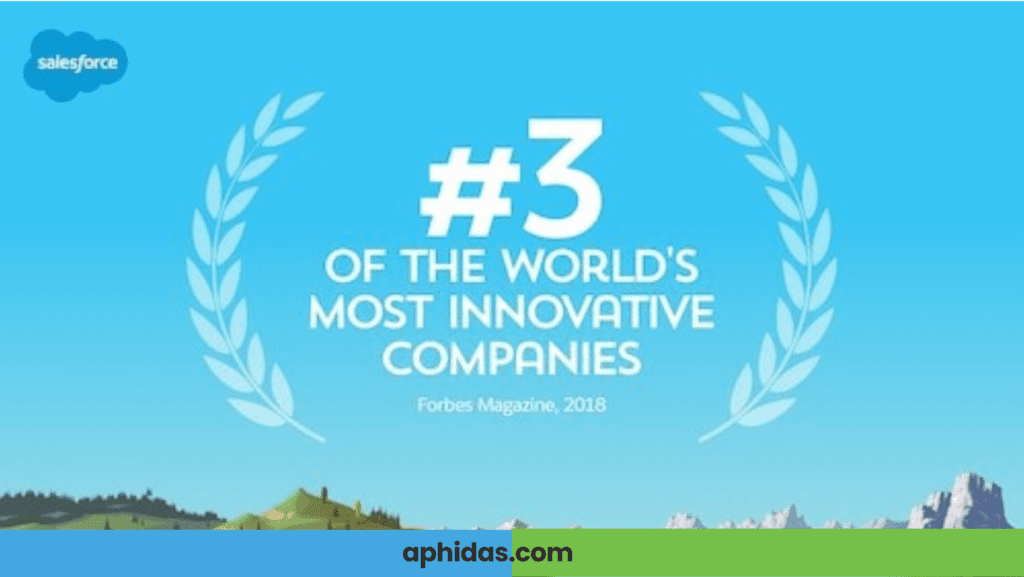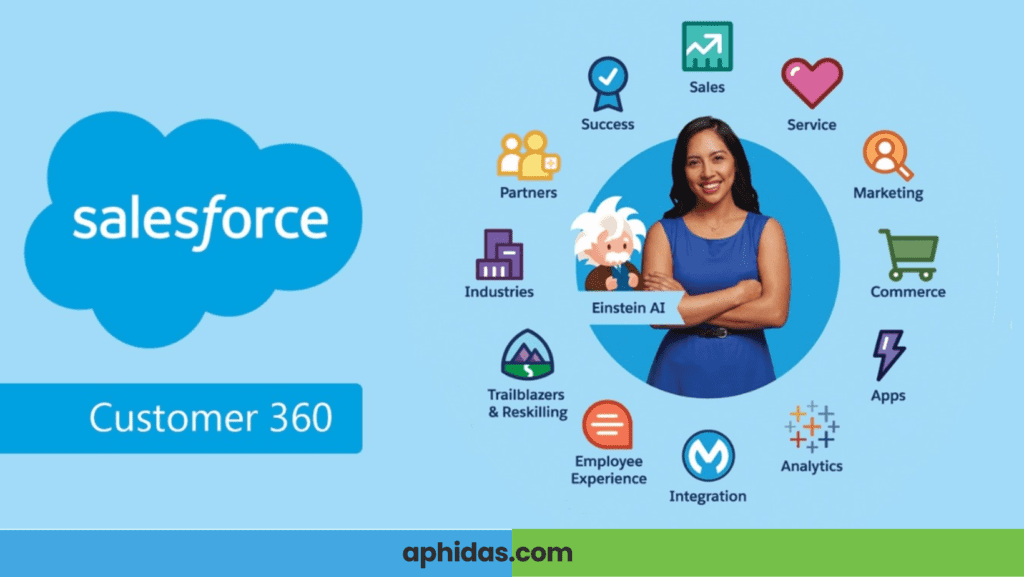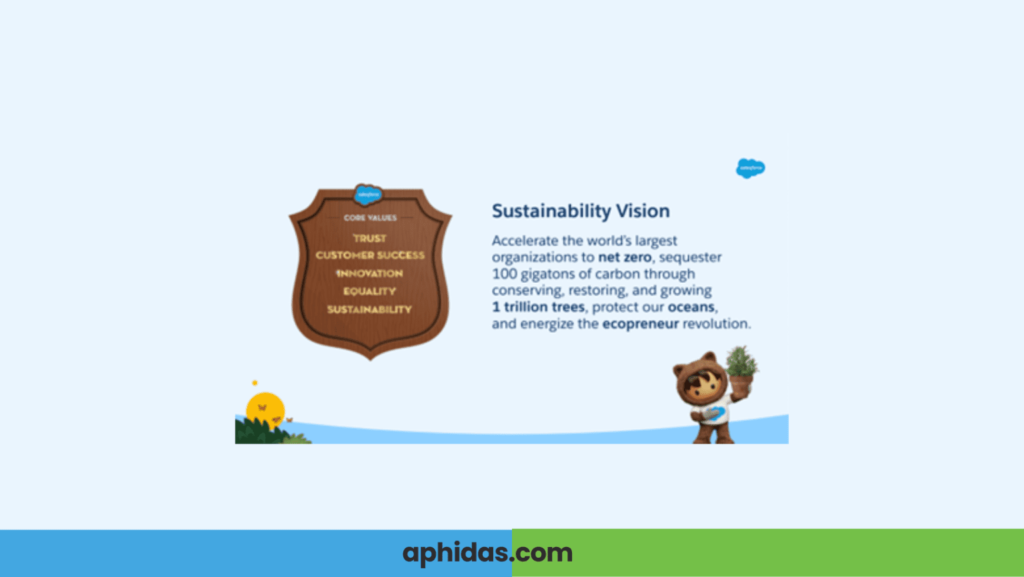The Unstoppable Growth of Salesforce

In the ever-evolving landscape of technology and business solutions, Salesforce stands out for its relentless growth and innovation. Over the years, Salesforce has consistently demonstrated its prowess in customer relationship management (CRM) and expanded its influence into various domains.
What Is Salesforce?
Salesforce is a leading cloud-based Customer Relationship Management (CRM) platform that has revolutionized the way businesses manage customer interactions. Founded in 1999, Salesforce began as a cloud-based CRM solution, and has since evolved into a comprehensive suite of tools designed to enhance customer relationships, streamline operations, and drive business growth. Its innovative approach to CRM and cloud computing has made it a cornerstone for businesses of all sizes, across various industries.
Why Salesforce’s Growth Matters
Salesforce’s rapid growth signifies not just the success of the company, but also the broader adoption of cloud technologies and CRM solutions worldwide. As a pioneer in cloud computing, Salesforce’s expansion reflects its role in shaping modern business practices and technological advancements. The company’s growth impacts businesses by providing them with powerful tools to enhance efficiency, customer engagement, and data management.
The Secret Behind Salesforce’s Success
1. Customer-Centric Approach
Salesforce’s journey to success began with a clear focus on its customers. From the outset, the company centered its operations around user needs. This customer-centric approach has fostered a loyal user base and created a continuous feedback loop that drives innovation. By listening to its customers and adapting its offerings, Salesforce ensures long-term satisfaction and relevance.

2. Cloud-Based Solutions
Salesforce revolutionized the CRM industry by introducing cloud-based solutions. This innovation disrupted traditional software models, making CRM accessible and scalable for businesses of all sizes. By offering software as a service (SaaS), Salesforce eliminated the need for costly on-premises installations, simplifying adoption and adaptation as businesses grew.

3. Continuous Innovation
Salesforce’s commitment to innovation is unwavering. The company invests heavily in research and development to keep its platform at the cutting edge of technology. Regular updates and new features keep users engaged and excited, allowing businesses to stay ahead of the competition.

4. Expanding Product Portfolio
Originally a CRM provider, Salesforce has significantly broadened its product portfolio. Today, it offers solutions for marketing automation, e-commerce, analytics, artificial intelligence, and more. This diverse ecosystem enables businesses to streamline operations by integrating various Salesforce products, creating a seamless and efficient workflow.

5. Commitment to Sustainability
Sustainability is a core component of Salesforce’s business strategy. The company has set ambitious goals to achieve net-zero greenhouse gas emissions and reach 100% renewable energy usage. By prioritizing sustainability, Salesforce reduces its environmental impact and appeals to customers and partners who share these values.

6. Strong Community and Partnerships
Salesforce has built a thriving community of users, developers, and partners. This ecosystem supports businesses in their Salesforce journey and fosters collaboration and knowledge sharing. The AppExchange marketplace, for instance, allows businesses to discover and implement third-party solutions that enhance their Salesforce experience.

7. Adaptation to Market Trends
Salesforce excels at identifying and embracing emerging trends in technology and business. Whether it’s artificial intelligence, mobile solutions, or the Internet of Things (IoT), the company adapts its offerings to align with market demands. This forward-thinking approach ensures Salesforce remains relevant and valuable in a rapidly changing world.

Key Drivers of Salesforce’s Growth
Innovative Technology and Features
- Artificial Intelligence (AI) Integration Salesforce has integrated artificial intelligence through its Einstein Analytics platform, which provides advanced data insights and predictive analytics. Einstein helps businesses make data-driven decisions by offering actionable insights, automating tasks, and personalizing customer interactions. For instance, Einstein Lead Scoring uses AI to prioritize leads based on their likelihood to convert, enhancing sales productivity and efficiency.
- Cloud Computing Advancements Cloud computing has been a significant driver of Salesforce’s growth. By offering scalable, on-demand access to computing resources, Salesforce allows businesses to adapt quickly to changing needs without the constraints of traditional IT infrastructure. The cloud model supports global access, collaboration, and real-time updates, which are critical for modern business operations.
Strategic Acquisitions and Partnerships
- Major Acquisitions Salesforce has made several high-profile acquisitions that have expanded its capabilities and market reach. For example, the acquisition of Slack in 2021 enhanced Salesforce’s collaboration tools, integrating them into its CRM platform. Similarly, the acquisition of Tableau in 2019 bolstered Salesforce’s data visualization and analytics capabilities, allowing users to derive deeper insights from their data.
- Strategic Partnerships Salesforce has formed strategic partnerships with major technology companies such as Microsoft and Google. These partnerships facilitate seamless integrations between Salesforce’s CRM and other widely-used tools and platforms. For instance, Salesforce’s integration with Microsoft’s Office 365 enhances productivity by allowing users to access and manage Salesforce data directly from Microsoft applications.
Expanding Market Presence
- Global Expansion Salesforce has strategically expanded its presence in international markets, adapting its solutions to meet regional needs and regulatory requirements. The company’s global growth strategy includes localized support, partnerships with local firms, and investments in regional data centers to ensure compliance and provide reliable service to customers worldwide.
- Diverse Industry Solutions Salesforce offers tailored solutions for a variety of industries, including healthcare, finance, and retail. By customizing its platform to address industry-specific challenges, Salesforce helps businesses optimize their operations and customer interactions. For example, Salesforce Health Cloud provides healthcare organizations with tools to manage patient relationships and streamline care coordination.
Salesforce’s Growth Strategies
Customer-Centric Approach
- Focus on Customer Success Salesforce prioritizes customer success by providing extensive support, training, and resources to help businesses maximize the value of its platform. The company’s commitment to customer success is evident through its comprehensive onboarding programs, user communities, and a vast library of educational materials.
- Customization and Flexibility One of Salesforce’s key strengths is its flexibility and customization capabilities. Businesses can tailor Salesforce’s CRM to fit their specific needs through custom objects, fields, and workflows. This adaptability ensures that Salesforce solutions align with unique business processes and requirements.
Continuous Innovation
- Product Development and Updates Salesforce is known for its continuous product development and regular updates, ensuring that its platform remains cutting-edge and relevant. The company’s innovation cycle includes frequent releases of new features and improvements, driven by customer feedback and technological advancements.
- Research and Development (R&D) Salesforce invests heavily in research and development to drive future growth and innovation. The company’s R&D efforts focus on exploring emerging technologies, enhancing existing features, and developing new solutions that address evolving business needs.
Challenges and Opportunities
Challenges Faced by Salesforce
- Market Competition Salesforce faces competition from other CRM providers such as Microsoft Dynamics, Oracle, and HubSpot. To maintain its leadership position, Salesforce differentiates itself through its comprehensive feature set, strong customer support, and continuous innovation.
- Integration Complexities Integrating Salesforce with other systems can be challenging, particularly for businesses with complex IT environments. Salesforce addresses these challenges through robust integration tools, APIs, and a large ecosystem of third-party apps that facilitate seamless connectivity.
Future Opportunities
- Emerging Technologies Salesforce is well-positioned to leverage emerging technologies such as artificial intelligence, Internet of Things (IoT), and blockchain. These technologies have the potential to further enhance Salesforce’s capabilities, providing new ways to analyze data, automate processes, and secure transactions.
- Expansion into New Markets Salesforce continues to explore opportunities in untapped markets, including developing regions and niche industries. The company’s strategic plans for expansion include building local partnerships, adapting solutions to regional needs, and investing in infrastructure to support growth.
Impact on Businesses
How Salesforce Drives Business Success
- Improved Efficiency and Productivity Salesforce helps businesses streamline their operations, automate routine tasks, and improve productivity. Features like workflow automation, task management, and real-time reporting enable businesses to operate more efficiently and make informed decisions.
- Enhanced Customer Relationships Salesforce enhances customer relationships through personalized interactions, data-driven insights, and comprehensive customer support tools. By leveraging Salesforce’s CRM solutions, businesses can build stronger connections with their customers, leading to increased satisfaction and loyalty.
Case Studies and Success Stories
- Real-World Examples Numerous companies have achieved significant success by adopting Salesforce. For example, a leading retail chain used Salesforce to optimize its sales processes and improve customer engagement, resulting in a substantial increase in sales and customer satisfaction.
- Metrics and Outcomes Salesforce implementations often lead to measurable improvements in key business metrics, such as sales revenue, customer retention, and operational efficiency. These outcomes highlight the platform’s effectiveness in driving business growth and success.
Conclusion
Salesforce’s consistent growth is a testament to its unwavering commitment to customer satisfaction, innovation, and adaptability. As businesses seek to enhance their customer relationships and streamline operations, Salesforce continues to be a reliable partner in their journey toward success.
With its eye on the future, Salesforce shows no signs of slowing down. Its growth trajectory reflects its enduring relevance in the world of business technology.
The Future of Salesforce
Salesforce’s future looks promising, with continued growth driven by its commitment to innovation, customer success, and strategic expansion. As the company continues to evolve and adapt to new technologies and market trends, it is well-positioned to maintain its leadership in the CRM space.
Why Businesses Should Embrace Salesforce
Embracing Salesforce offers numerous benefits, including enhanced efficiency, improved customer relationships, and access to cutting-edge technologies. Businesses looking to stay competitive and drive growth should consider Salesforce as a key component of their technology strategy.
Get Started with Salesforce
If you’re interested in exploring how Salesforce can benefit your business, contact Aphidas for expert Salesforce solutions. Our team provides comprehensive services, including implementation, customization, and support, to help you maximize the value of your Salesforce investment.

